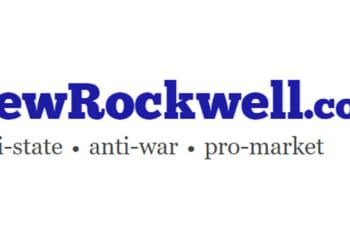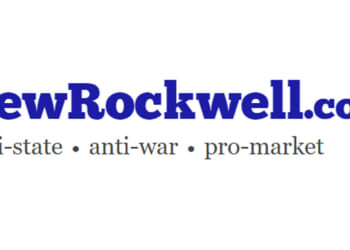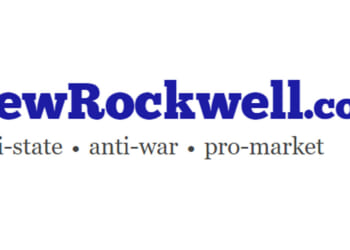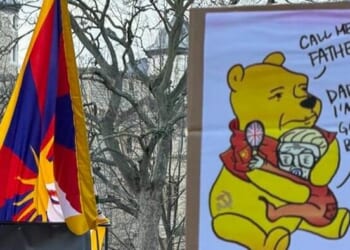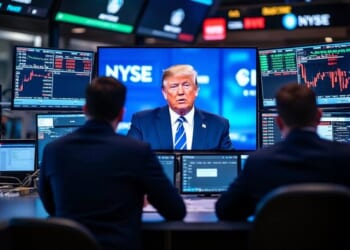Editorial note: this essay originally appeared at The Giving Review.
Andrew Grossman is a partner at the BakerHostetler law firm’s office in Washington, D.C. He has appeared before the U.S. Supreme Court, nearly all of the federal courts of appeals, as well as some state appellate courts. His practice includes representation of and providing counsel to nonprofit organizations, including private-foundation grantmakers and grant recipients.
Grossman is also a senior legal fellow at The Buckeye Institute and an adjunct scholar at the Cato Institute’s Robert A. Levy Center for Constitutional Studies. He has been a fellow and policy analyst at The Heritage Foundation’s Meese Center for Legal and Judicial Studies, as well.
He was kind enough to join me for a recorded conversation last week. In the first part of our discussion, which is here, he talks about his practice; the increased scrutiny of the nonprofit sector; the potential effects of that scrutiny on civil society more generally; more specifically, the Trump administration’s recently reported plans to enhance the Internal Revenue Service’s (IRS’s) criminal-investigative division, including to subject philanthropies to even more, in this case legal scrutiny; and the potential effects of that enhancement on foundations and nonprofits.
The just less than 18.5-minute video below is the second part, during which we discuss the government’s high burden to prove a grantmaker’s criminal liability for the activities of a grantee, the narrow circumstances under which any such liability would be found, and steps to avoid risking liability.
Properly assessing both the government’s burden and the grantor’s risks
Presented with a hypothetical, Grossman tells me that if a “foundation simply gave money to a group that subsequently happened to be involved in some sort of criminal activity, those bare facts alone would never support criminal liability. That’s just not the way that it works.
“Generally, there has to be a greater intent that is involved,” he continues. “So at a minimum, that’s going to be knowledge.” In the case of federal criminal charges, “there has to be some nexus to something that’s a federal crime and then, particularly” in the contexts of
charities and foundations, you’ve got this overlay of federal tax law. There’s this interesting interaction where if their grantees are undertaking unlawful activities, the fact that a foundation or a charity knew about that, that might support—and I may be going out on a limb here—but it might support some sort of tax-fraud charge, where something like that … arguably, that could be an improper use of charitable assets. And it might well lead to an improper reporting of the use of charitable assets.
Again, however, “for somebody who merely gives money to a group that they support because they support its aims, they support the work that it’s doing, and say an employee from that group then goes and does something that’s bad,” Grossman underscores, “that’s never going to be a basis for any sort of criminal liability.”
“That’s the one nice thing here, and it’s a little bit weird to say, but it is a nice thing about criminal liability,” he says, “that the standards are relatively clear. Ultimately, proving this kind of case is going to put a pretty significant burden on the government.”
The circumstances under which there would be criminal liability are thus relatively narrow and the accusations by many that the Trump administration is engaged in some sort of broad attempt to overbearingly bring criminal law to civil society writ large might be somewhat overstated, Grossman agrees.
“For groups that find themselves now facing potential risk” of investigation or prosecution “over funding decisions they’ve made,” according to Grossman,
of course their response is going to be this is an attack on civil society, whereas for groups that have been carrying out their missions, and paying attention to their obligations under law, and not doing things that are potentially subject to criminal liability—which is the vast swath of civil society—this is not really going to be part of their risk profile.
Again underscoring: “If you’re working at a foundation that—forget taking compliance seriously—one that takes its missionseriously, the people working on grants, they’re going to know what the grant recipients are doing, … they’re going to know the people who are involved, are going to be following their activities.” Criminal liability “is never really going to be a risk. For this to even be a prospect of risk to a donor organization, there has to be at a minimum some form of knowledge. Like I said, if you’re responsible, that’s never really going to be a problem.”
Mitigation and misplacement
In terms of mitigating any legal risks, “[I]f you look at some of the most-controversial cases, enforcement actions that have been brought against nonprofit organizations in recent years,” he says,
they’ve all been based on meat-and-potatoes compliance issues, accounting controls, … proper tax records—just the things that everybody ought to be getting right, but unfortunately a lot of groups just let slide because they just don’t have a focus on just ordinary compliance activities and proper auditing and making sure that they’ve got their books in order.
Grossman’s “advice for every group that fears that they might be targeted based on their activities or that they might suffer political retaliation” is to “make sure your house is in order.”
Asked whether those who purport to speak for the sector might do better to acknowledge the possibility of at least some wrongdoing, while promising to help root it out and thereby seek overall improvement in and increased trust in the sector, he concludes by giving what he calls “a very lawyerly answer. … I don’t think that there is too much fear and concern in this area, but I think that it’s very misplaced, especially recently in so many fearful articles.”
Calls for increased scrutiny, including potentially investigative and prosecutorial, Grassman concludes, “appear to be aimed at … activity that everybody should have understood was problematic from day one.” But “at the same time, we are seeing increasing attacks on organizations that are doing vital civil-society work.” He says, “There are these attacks, particularly at the state level,” recalling some of the ones he referenced at the beginning of our discussion.
“If there is any upshot to the current wave of panic over the Trump administration’s activities, it’s that maybe it will help broaden attention to what I think is this more-important underlying issue that is, as I said, really just been slowly developing over a period of years.”



